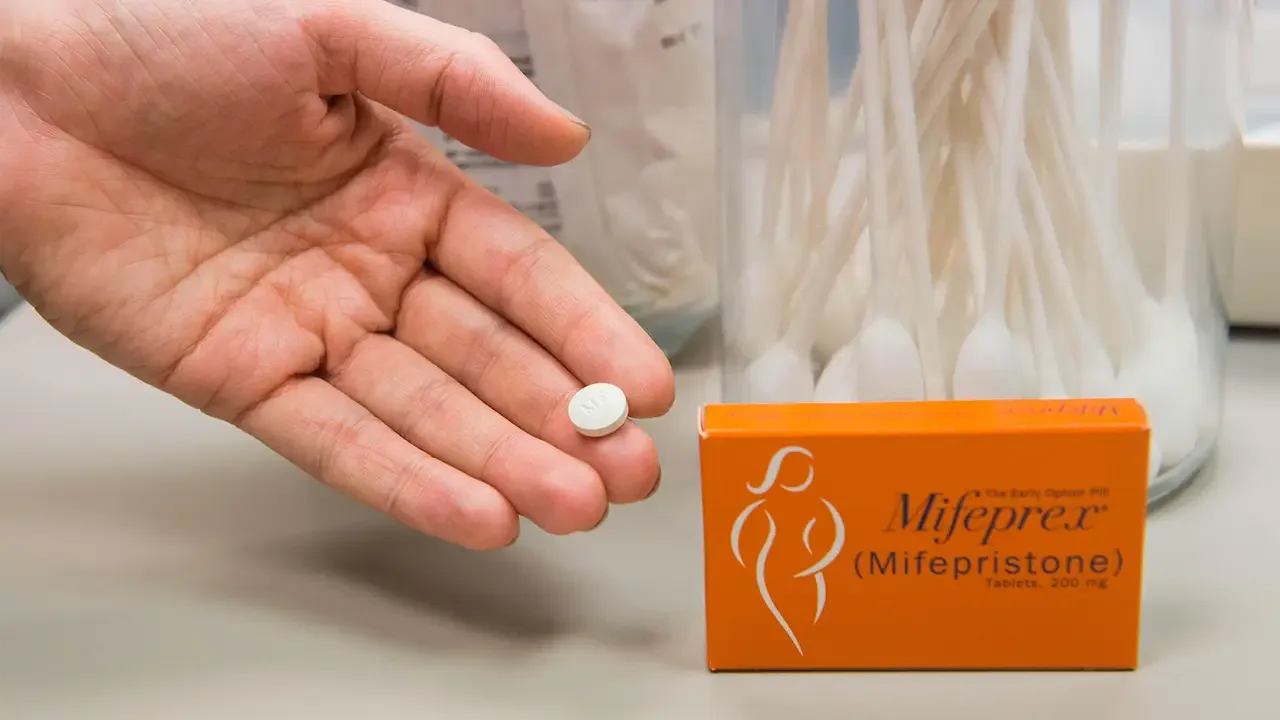Written by Zane McNeill, Civil Rights & Health Equity Legal Fellow
The Trump administration is considering restricting access to mifepristone, a medication used in nearly two-thirds of abortions in the United States and widely prescribed for miscarriage management.
Approved by the Food and Drug Administration (FDA) 25 years ago, mifepristone has consistently been shown to be safe and effective. Although the FDA originally imposed burdensome Risk Evaluation and Mitigation Strategy (REMS) restrictions on the medication, it eased these requirements over time in response to extensive research supporting the drug’s safety. In 2016, the FDA extended on-label use from 49 to 70 days’ gestation, and in 2019, it approved the first generic version of the drug. In 2020, during the COVID-19 pandemic, the ACLU challenged the FDA’s in-person dispensing rule, arguing that it was medically unnecessary and needlessly exposed patients to health risks. A federal court agreed and blocked the requirement. In January 2023, the FDA formally revised the REMS modification to permanently allow clinicians to prescribe mifepristone via telehealth, ensuring patients could obtain it either in person or by mail.
The change to permit telehealth took on special significance after Dobbs v. Jackson (2022) overturned the constitutional right to abortion and triggered bans or severe abortion restrictions in 23 states. With more patients forced to travel out of state for care—nearly one in five in 2023—18 states enacted “shield laws” to protect providers and patients from out-of-state legal actions, allowing providers to safely provide abortion medication to people living in states that banned abortion. Telehealth access and shield law providers became a crucial lifeline for patients who were unable to travel out of state for abortion care because of cost, time, or childcare considerations.
In response, anti-abortion groups quickly sought to block these remaining avenues to access. In 2022, the Alliance for Hippocratic Medicine sued the federal government over its 2000 approval of mifepristone and subsequent relaxation of the REMS. The group was strategically incorporated in the jurisdiction of conservative and notoriously anti-abortion federal judge Matthew Kacsmaryk.
In April 2023, Judge Kacsmaryk relied on a since-retracted study to rule that the FDA’s approval of mifepristone should be revoked. In his opinion, he also pointed to a "zombie law" — the Comstock Act — a 19th-century anti-vice law that bans the mailing of anything related to abortion. Though largely unenforced for decades, anti-abortion campaigns like the Heritage Foundation’s Project 2025 – a plan that has been embraced by the Trump administration – have resurfaced the law.
Judge Kacsmaryk’s dangerous ruling, which would have revoked access to medication abortion nationwide, was stayed pending appeal, and in June 2024, the Supreme Court unanimously dismissed the case for lack of standing. The Court did not address the merits of the case—specifically, whether the FDA had lawfully eased restrictions on mifepristone–leaving the door open for anti-abortion states to revive the case. Earlier this year, Judge Kacsmaryk allowed Idaho, Kansas, and Missouri to do just that. In October, he refused to dismiss, instead transferring it to the Eastern District of Missouri, which could set the stage for a ruling on the merits that could reinstate the previous REMS on the medication.
While anti-abortion states had hoped the Trump administration would not defend mifepristone in court, it unexpectedly continued the Biden administration’s position that the suit should once again be dismissed on standing grounds. However, recent actions suggest the administration may be exploring a "backdoor" abortion ban through agency action—a strategy that could attract less public attention than a broadly unpopular outright ban.
In July, 22 Republican attorneys general submitted a letter to the Department of Health and Human Services (HHS) and the FDA demanding that the agencies reinstate restrictive and medically unnecessary REMS for the medication, citing a study from the conservative Ethics & Public Policy Center (EPPC) which research experts have criticized as “junk science.” Notably, this “study” was published mere days after FDA Commissioner Marty Makary stated that he would not review mifepristone unless new data came to light. In September, HHS Secretary Robert F. Kennedy Jr. and FDA Commissioner Makary responded to the Republican attorneys general by affirming that the FDA is reviewing the drug’s “safety and efficacy.”
Advocates warn that the FDA’s review could provide the pretext to limit or ban mifepristone, similar to how the HHS produced flawed research on gender-affirming care as a pretext to exclude gender-affirming care from required insurance coverage and make hospitals ineligible for Medicare and Medicaid reimbursement if they provide gender-affirming care to transgender minors.
As courts allow anti-abortion states to revive legal challenges to mifepristone and the Trump administration signals interest in using agency rulemaking to restrict abortion access, the future of mifepristone looks bleak. However, a coalition of attorneys general from 19 states is pushing back. New York Attorney General Letitia James, who is co-leading the effort, vowed that, “if access to mifepristone is challenged, we will take action to protect it.”





